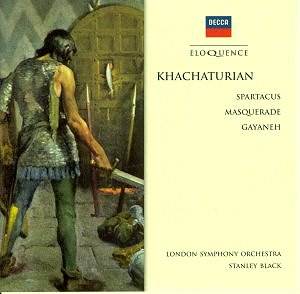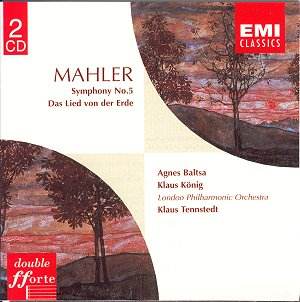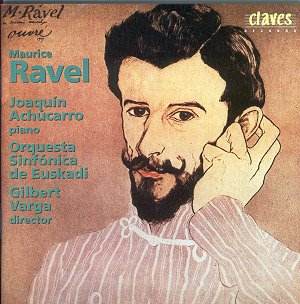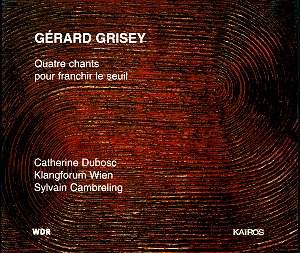 Composer: Aram Khachaturian
Composer: Aram Khachaturian
Works: Spartacus Suite (1956), Masquerade Suite (1941), Gayaneh Suite (1943)
Performers: London Symphony Orchestra, Stanley Black (conductor)
Recording: 1975 and 1978 sessions, ADD
Label: DECCA Eloquence 461 007-2
Aram Khachaturian, a towering figure of 20th-century music, is often celebrated for his ability to imbue traditional forms with a vibrant and distinctly national character. His compositions, particularly the suites from Spartan themes and folk-inspired ballets, serve not only as vehicles for dramatic expression but also as reflections of the rich cultural tapestry of Armenia. The works presented in this DECCA Eloquence release—namely the “Spartacus Suite,” “Masquerade Suite,” and “Gayaneh Suite”—provide a compelling glimpse into Khachaturian’s mastery of orchestration and rhythmic vitality, all delivered with the hallmark flair that Stanley Black brought to his interpretations.
The “Spartacus Suite,” which includes the now-iconic Adagio for Spartacus and Phrygia, is rendered with a lushness that enhances its emotional depth. Black’s interpretation of this movement, famously featured in the BBC series “The Onedin Line,” is particularly noteworthy for its rich sonorities and expansive phrasing. The lush strings are complemented by a well-balanced brass section, allowing the music’s inherent drama to unfold organically. While Black’s take may not possess the raw edge found in Svetlanov’s more visceral renderings, it offers an accessibility that may appeal to a broader audience. The “Dance of the Gaditanes,” in particular, shines under Black’s baton, maintaining tension and atmosphere with a Bolero-like drive that propels the listener through its rhythmic variations.
Turning to the “Masquerade Suite,” one finds Khachaturian’s more playful side. This suite is a whirlwind of colors and moods, and Black captures its exuberance with a deft touch. The Mazurka movement bursts forth with a lively energy reminiscent of Offenbach’s Can-Can, showcasing a delightful interplay between the strings and woodwinds. Here, Black’s interpretation deftly balances the suite’s inherent whimsy with a sense of structure and coherence, ensuring that the wildness does not devolve into chaos. The technical execution of the LSO is commendable, with tight ensemble playing and clarity in polyphonic passages that enrich the overall experience.
The “Gayaneh Suite” further exemplifies Khachaturian’s ability to synthesize folk elements with classical idiom. While it draws on a variety of influences—echoing Borodin’s “Prince Igor,” Ippolitov-Ivanov’s “Sardar March,” and snippets of Rimsky-Korsakov’s Easter Festival—Black’s interpretation avoids the pitfalls of pastiche. Instead, it presents a cohesive narrative that celebrates Khachaturian’s inventiveness. The “Dance of the Rose Maidens” emerges as a highlight, showcasing a lyrical beauty that is both haunting and joyous, deftly crafted by Black’s sensitive conducting. This movement, while reminiscent of Mussorgsky’s work, takes on a life of its own, and Black’s shaping of the phrasing imbues it with a warmth that resonates deeply with the listener.
The recording quality of this DECCA release, produced during a time when stereo sound was becoming the standard, benefits from the glitzy Phase Four engineering. The clarity of the orchestral textures allows each instrument to shine, with a notable depth in the strings that enhances the lushness of Khachaturian’s writing. Though some might argue that the vigor of the performances could be rivaled by more modern recordings, the warmth and immediacy of this production lend it a charm that is difficult to overlook.
This collection of Khachaturian’s works, under Stanley Black’s guidance, stands as an engaging exploration of the composer’s dynamic artistry. While it may not eclipse the more intense interpretations by conductors such as Svetlanov or Tjeknavorian, it offers a delightful and approachable entry point into Khachaturian’s world. The London Symphony Orchestra’s performance is notable for its energy and precision, making this recording a worthy addition to any classical music collection, particularly for those seeking to appreciate Khachaturian’s exuberant style without the heaviness sometimes associated with Russian orchestral music.



